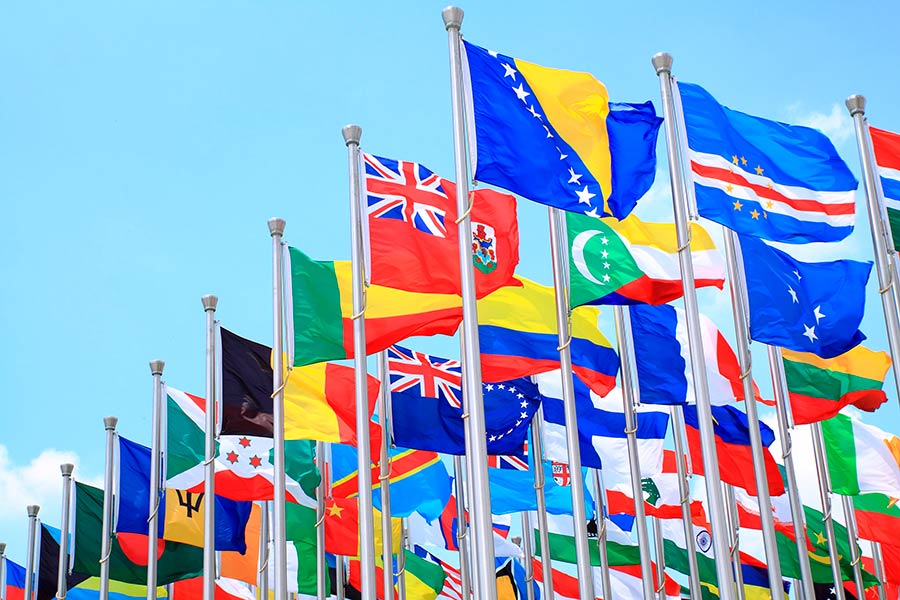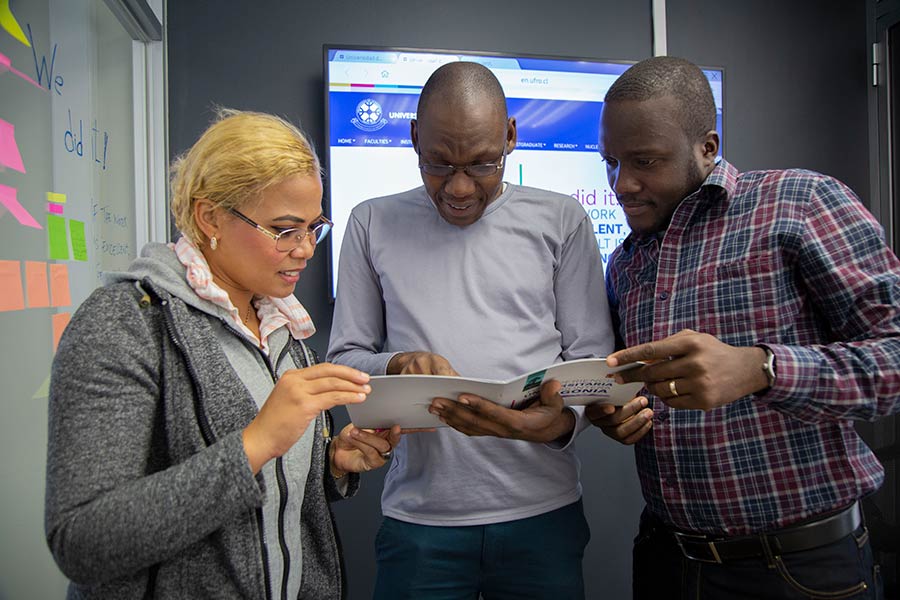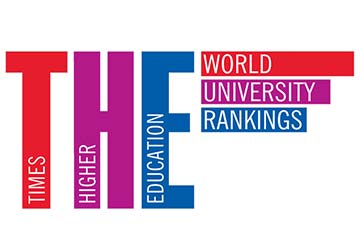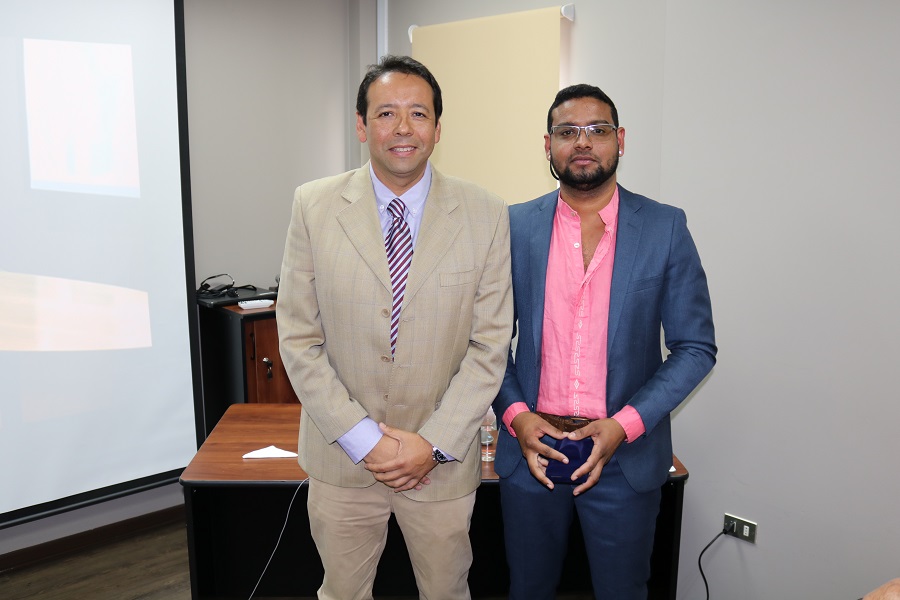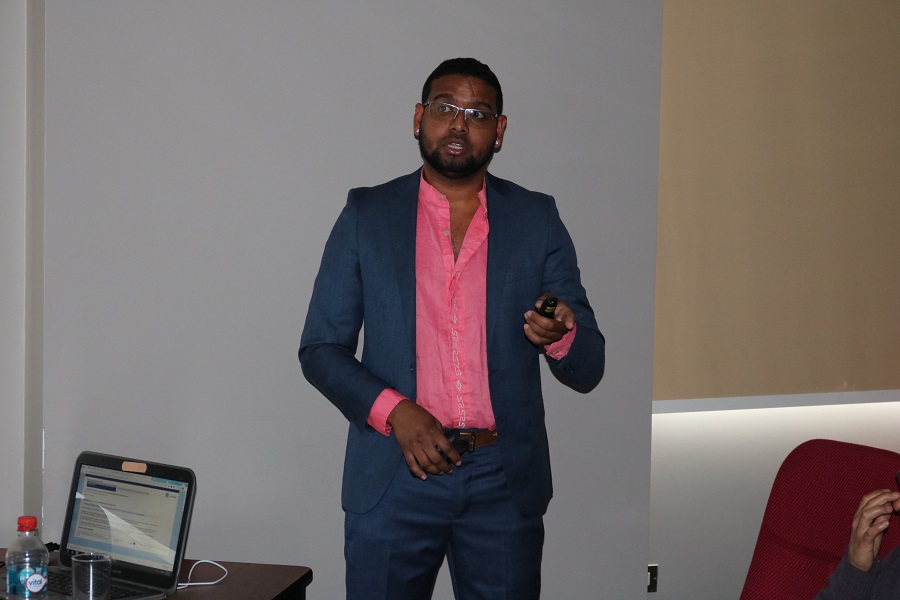UFRO signs new double degree agreements and strengthens links with universities of excellence abroad
|
Australia, Brazil, Belgium, the Netherlands and Colombia are the countries with which the UFRO is creating or renewing its double degree agreements. |
Thanks to the signing of new double degree agreements and the renewal of the existing ones, the Universidad de La Frontera (UFRO) keeps being a leader in the training of advanced human capital in the south of Chile and achieving that its international alliances have a positive impact on its doctoral programs and research teams. Dr. Berta Schnettler, the director of the UFRO International Affairs Office, affirmed: “One of the greatest demonstrations of institutional trust between foreign universities is when they establish and maintain double degree agreements, what confirms the academic quality of the programs that are in alliance with each other. In this context, the partnerships with institutions in Australia, Brazil, Belgium and the Netherlands represent privileged relations and links with high-prestige universities around the world.” BRAZIL In 2018, a group of academic representatives of the UFRO went to visit different universities and research centers in Brazil and achieved to strengthen and expand cooperation and partnerships. Dr. Luis Salazar, one of the UFRO representatives on the trip to Brazil, explained: “Indeed, this was an opportunity to address the partnerships we have been establishing over several years in a more institutional way and based on specific actions of cooperation between the study programs.” On another recent visit to Brazil, Dr. Salazar was able to take up cooperation and to renew the double degree agreement between the Doctoral Program in Science with specialization in Applied Cellular and Molecular Biology of the UFRO and the postgraduate programs of the Faculty of Pharmaceutical Sciences of the University of São Paulo. He also started new conversations with representatives of the postgraduate program in Human Physiology at the Institute of Biomedical Sciences in São Paulo. The respective agreement has already been elaborated and is ready to be signed by the authorities of both institutions. These links with universities and research centers in Brazil are the result of several years of work and symbolize one of the most ambitious developments for the university community regarding international cooperation and the creation of links for the development of strategic areas of the UFRO. It is worth mentioning that also another framework convention with the Federal University of Rio de Janeiro (UFRJ) has been approved. “We are very pleased with these partnerships and they motivate us to maintain a certain level of productivity, research quality and excellence in our academic work. At the same time, they contribute to the consolidation of a more centered and reciprocal cooperation in the different fields of research. Another positive factor of these agreements are the programs for international stays, scholarships and joint supervision of doctoral studies offered by CONICYT for studying abroad”, the academic added. In detail, the new framework convention with the Federal University of Rio de Janeiro will allow stays and the exchange of undergraduate and graduate students, teachers and researchers, the joint supervision of thesis, and joint research activities, in other words, this is the basis for a double degree agreement for the related programs. BELGIUM Another important link regarding internationalization is the double degree agreement for doctoral programs in the fields of science, technology and engineering, that crowns the relationship the Universidad de La Frontera established with the University of Louvain (Université catholique de Louvain) over the last ten years. The main units of this agreement are the UFRO Faculty of Agricultural and Forestry Science, especially the Doctoral Program in Agri-food Sciences and Environment, and the Doctoral Program in Natural Resources in Belgium. This Belgium institution is ranked among the best 40 universities worldwide. Dr. Adison Altamirano of the UFRO Faculty of Agricultural and Forestry Science said: “No other institution in Chile has a double degree agreement with a university of this level and that is the result of our systematic, detail-oriented work, into which we have put all our academic capacities, besides of the natural laboratory we are living in, the Araucanía Region.” Besides of the double degree agreement for doctoral studies in the fields of science and technology, also the possibility of creating an international research center between the Chilean Universidad de La Frontera, the Belgium University of Louvain and the Macquarie University in Australia came up – a powerful intercontinental alliance with projections in a wide range of fields. For Dr. Altamirano, the director of the doctoral program in Agri-food Sciences and Environment, one of the most important aspects of this alliance is to be able to contribute to the institution in a transverse way: “We have been working in the area of undergraduate studies, accepting the teaching challenge and making a positive impact on our students, also at the postgraduate level and, besides, we have made a tremendous contribution in the fields of research.” THE NETHERLANDS In February 2016, the Universidad de La Frontera signed a framework convention with the University of Groningen in the Netherlands. Dr. Carlos del Valle is the UFRO coordinator who initiated this partnership as a Research Fellow. After an internship in 2018, the proposition of signing a double degree agreement for the Doctoral Program in Communication was made within the framework of the project “Cultural Narratives of Crisis and Renewal (CRIC)” that was part of the Research and Innovation Staff Exchange (RISE) of The Marie Skłodowska-Curie Actions in Horizon 2020. According to Dr. Del Valle, one of the main contributions of this link with the University of Groningen is that it allows an international visibility of high relevance, since this institution is among the best 100 universities in the world: place 79 in the THE Rankings 2019; place 66 in the Shanghai Ranking in 2018; place 91 in the Webometrics world ranking. The doctoral program in communication achieved to make the double degree agreement a reality and marks a significant milestone. Apart from obtaining a double degree, this agreement will also allow the exchange of students and teachers of both universities, as well as of academics and mentors of the doctoral program. It also does not exclude the option to broaden this agreement and to include other doctoral programs in other fields in the future. COLOMBIA The doctoral program in Social Sciences of the Universidad de La Frontera, directed by Dr. Javier Mayorga, also wants to establish a double degree agreement with two outstanding universities in Colombia. The preliminary agreements have already been drafted. One for the doctoral program in Social Sciences and Humanities of the Pontifical Javeriana University (Pontificia Universidad Javeriana), which is one of the 33 universities of the Society of Jesus in Latin America and ranked in place 167 worldwide. It has 18,725 undergraduate students, 4,389 postgraduate students, 3,458 tenured professors and more than 1,500 administrative employees. In 2016, 2017 and 2018, the Pontifical Javeriana University achieved to be the best university in Colombia according to Times Higher Education. The second preliminary agreement is for the University of Antioquia (Universidad de Antioquia). It was founded in 1803 and is considered to be one of the best universities in Colombia, with 26 units at 14 faculties, four schools, four institutes and three corporations that offer about 130 undergraduate programs. The postgraduate program offer includes 57 Master’s programs, 23 doctoral programs, 58 specialization programs and 46 medical specialization programs.
 Written by: UFRO Communications Office Written by: UFRO Communications OfficeThis email address is being protected from spambots. You need JavaScript enabled to view it. |
|
The Ranking lists the world’s best universities that are 50 years old or younger. The UFRO is ranked in the range 201-250 at the international level, in third place among the Chilean universities and in first place among the Chilean state universities. |
This is another excellent achievement for the Universidad de La Frontera (UFRO). This time, it is ranked in the Times Higher Education (THE) Young University Rankings 2019 in the range 201-250 at the international level and in third place among Chilean universities. The Ranking lists the world’s best universities that are 50 years old or younger. This year’s ranking includes 351 universities (101 more than in 2018) in 60 countries. Seven of them are from Chile and the Universidad de La Frontera is the third best among them and in first place regarding the state universities. In this regard, the Rector Dr. Eduardo Hebel Weiss pointed out that the latest results of the THE Young University Rankings 2019 “support and highlight that the UFRO is working in the fields that make it stand out: we have ten doctoral programs, of which two are internationally accredited, what means that we attracted more than 1200 national and international students in postgraduate. Regarding research, we achieved to increase the number of WoS publications, and now, we are trying to improve the impact of them. This new awareness has served as a basis for the development of new outstanding and pertinent lines of research, since part of our interest is that our results reflect the needs of the region we live in.” He also emphasized: “When it comes to outreach and community engagement, we are committed to the challenges of the Araucanía Region and all its scopes: renewable energies, health, teaching quality, links with businesses, and so on. Definitely, being in third place in the THE ranking is the result of the responsible and solid work of our university community.” This ranking uses the same 13 performance indicators as the THE World University Rankings, but the weightings have been adjusted to give less weight to reputation, since it lists universities that are 50 years old or younger.
 Written by: UFRO Communications Office Written by: UFRO Communications OfficeThis email address is being protected from spambots. You need JavaScript enabled to view it. |
|
This important award has been received by Dr. Gonzalo Valdes in representation of the Road Paving Research Group of the Universidad de La Frontera. |
At the second edition of the Innovation Awards in Chile, promoted by the Sacyr Foundation - a company from Spain that specializes in the construction and management of infrastructures and services - the Road Paving Research Group (GIPAV) of the Universidad de La Frontera (UFRO) was awarded in the regional category. With their project FIBRA-TYRE, researchers of the UFRO Department of Civil Engineering earned a recognition that seeks to publicly reward initiatives that research and work on innovative, creative and pioneer projects, developments and ideas in the field of infrastructure and related services. In a ceremony attended by Jose Luis Dominguez, the Deputy Secretary of Transportation in Chile, and Manuel Manrique, the President of Sacyr (among others), Dr. Gonzalo Valdés received this important award on behalf of the Road Paving Research Group. “This recognition is very important for us, since the award comes from an important international company in the field. That shows us that our work at the UFRO is not only important on the scientific level, but also has great potential in the industry,” Dr. Valdes commented. The call for this competition was open during the second semester of 2018, with the possibility to present projects in two categories: metropolitan level and regional level. “At the award ceremony, they emphasized the importance of finding and acknowledging the initiatives that contribute to the construction of a more sustainable country, especially with regard to climate change. In other words, they want to find comprehensive developments that contribute to the circular economy, to recycling, valorization, energy efficiency, and other related issues,” Dr. Gonzalo Valdes said. He also appreciates the commitment with which the multidisciplinary group of experts in the field of vial infrastructure and students have been taking forward this project, as well as the support of the Macro Faculty of Engineering and the Technology Transfer Unit of the Universidad de La Frontera.
 Written by: Daphne Bormann Written by: Daphne BormannUFRO Faculty of Engineering and Science |
|
The promising results of Dr. Brian Effer Roldan’s study could provide a new option to decrease the side effects and the immunogenicity the conventionally used drug for this pathology normally presents. |
The main objective of the research carried out by Dr. Brian Effer Roldan was to investigate a possible biopharmaceutical alternative for acute lymphoblastic leukemia by obtaining an enzyme through glycosylation. With this work, he obtained his doctorate degree in Sciences with mention in Applied Cellular and Molecular Biology from the Universidad de La Frontera (UFRO) in Chile. This is an innovative research project which, among the promising results, aims at the development of an alternative drug that is more economic and causes less side effects and organic effects thanks to its composition. The study is called: “Recombinant L-asparaginase of Dickeya chrysanthemi with homogenous glycosylation: a possible biopharmaceutical alternative for acute lymphoblastic leukemia”. “My study consisted in obtaining an enzyme that is currently used to fight lymphoblastic leukemia, but in a different way: through glycosylation (addition of sugar), with the aim of reducing the side effects and the immunogenicity the conventional drug normally presents”, Dr. Effer explained. One of the results of the study is the obtainment of three different protoforms of the same glycosylated enzyme and, besides, with low immunogenicity compared to the drug that is currently used on the market. “If we manage to finish this with an economic proposal, it would be one of the few drugs for cancer that has been produced in Latin America. Another important factor is that this drug would be much cheaper, so that the people who need it would have another option. In addition, it would be an organic alternative to the drug that already exists – it is modified with synthetic polymers, while we used natural sugars, what makes it an organic alternative”, Dr. Effer pointed out. The thesis of Dr. Effer was carried out at the Laboratory of Engineering, Biotechnology and Applied Biochemistry of the Department of Chemical Engineering of the Universidad de La Frontera and in the Laboratory of Molecular Biology and Industrial Biotechnology of Microorganisms of the Faculty of Pharmaceutical Sciences of the University of São Paulo (USP) in Brazil. His supervisors were Dr. Jorge Farias (UFRO Chile) and Dr. Gisele Monteiro (USP Brazil). Dr. Effer graduated as a fisheries engineer from the University of Magdalena in Santa Marta, Colombia, and entered the Ph.D. Program in 2014. The recently graduated Ph.D. student greatly valued the plus that this kind of Doctorate guarantees, since it allows to broaden the range of possibilities for research in different fields of interest. “It was a very significant experience and I am very grateful that the UFRO opened its doors to me and my ideas. I hope that this study will be the basis for me to gain a foothold in the field of research here in Chile. I am a fisheries engineer and that has limited me to work in the field of hydrobiological resources, but by finishing this doctoral program, I broadened the range of options,” he explained. During the elaboration of his thesis, Dr. Effer achieved four publications in ISI journals and one article submitted. In addition, he made two presentations at international congresses.  Written by: UFRO Communications Office Written by: UFRO Communications OfficeThis email address is being protected from spambots. You need JavaScript enabled to view it. |
|
Six Chilean start-ups billed between 500 and one million dollars in less than two years and now want to enter the global markets. |
The business incubator and accelerator of the Universidad de La Frontera (Incubatec UFRO) that has been distinguished as the best business incubator in Chile for four years in a row by the Production Development Corporation (CORFO) because of the amount of the businesses’ sales, chose six companies with high potential to revolutionize the international markets and invited them to present their businesses to potential investors and business partners. During the encounter, the presentations included from an intelligent virtual safety assistant that blocks stolen cars, takes a picture of the thief and “talks” to him, to a company that disintermediates the current sale of currencies through technology, improving the price for the end user. All of them are Chilean start-ups that billed between 500 and one million USD in less than two years and that want to enter the global markets. “At Incubatec UFRO we want to promote and strengthen Chilean start-ups with possibilities of international growth and to achieve our goal as a public and state university, which is to concretely contribute through talent and knowledge management to the country’s development, what translates into new innovative businesses,” Claudine Uribe, the executive director of Incubatec UFRO, said. “The particularity of these businesses is that each one of them stood out in the different phases of development, from the prototype phase, to the phase of scaling and, for some of them, the phase of raising private capital. They all have a unique motor of development, in some cases a proposal of value, based on some kind of cutting-edge technology, such as artificial intelligence or sensoring,” Gerardo Lagos, the director of innovation at Incubatec UFRO, added. INCUBATEC UFRO Incubatec UFRO is a business accelerator and incubator that has been created 18 years ago, with its headquarters in Temuco and Puerto Montt, Chile. Until now, Incubatec UFRO has been working with 98 resident companies, of which 30 are valued at 53.8 million USD and 17 internationalized. It has been chosen by UBI Global as the eight best incubator in the world and the best one in Latin America in the category World Top Business Accelerator linked to University. It was also awarded by Corfo for having a portfolio with the highest level of sales in the country over the past four years (7800 million Chilean pesos in 2017). CHILEAN START-UPS THAT WANT TO ENTER THE GLOBAL MARKETS Rayo app: A logistics technology service that helps companies to make their delivery service more efficient. Some of the benefits are the short delivery timelines (about two hours), and the delivery of products of high-value or special care, such as stem cells. The project, which has billed more than 2 million USD in less than one and a half years, is one of the start-ups with the highest turnover and fastest growth (after NotCo) that has been through the programs of Corfo over the last five years. https://www.rayoapp.com/
Ivan Drive: It is the first intelligent virtual safety assistant that protects cars. The idea is to decrease the number of stolen cars by installing this system that includes face recognition, sensors that detect the unauthorized use of the car, traffic behavior patterns, photo-mechanisms inside the car and even the automatic detention of the car in case that it gets stolen.
 Source: Incubatec UFRO Source: Incubatec UFRO |
Incubatec UFRO





